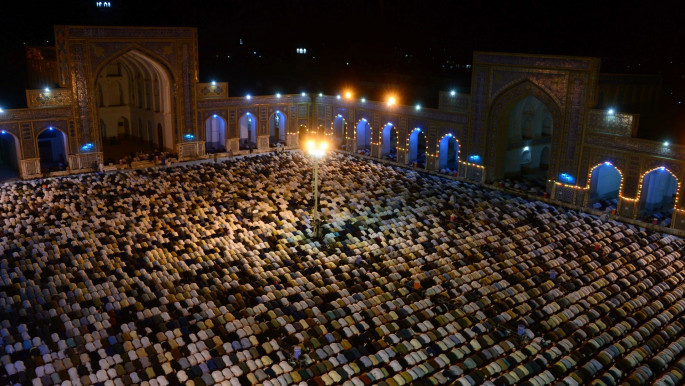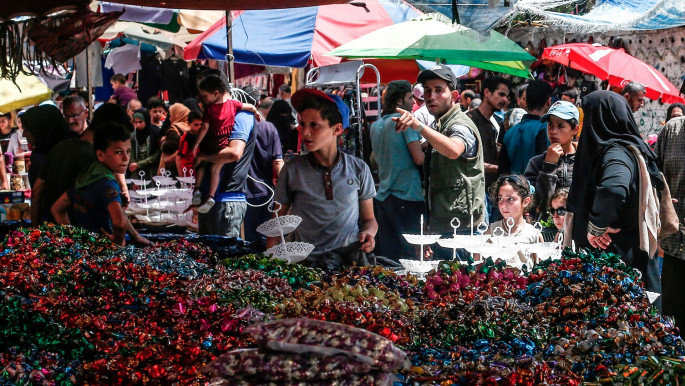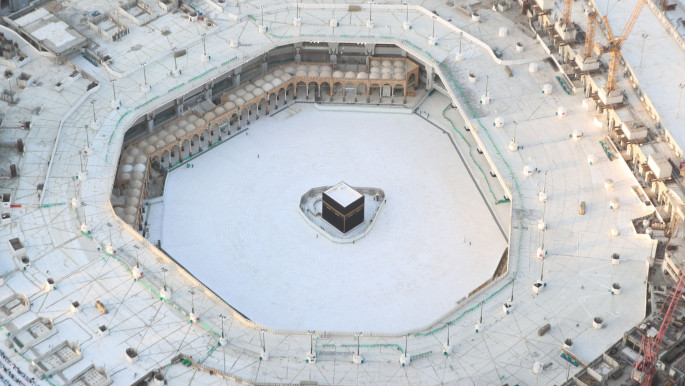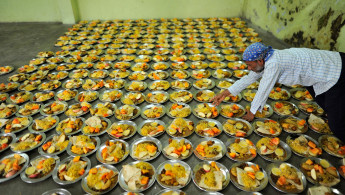Will coronavirus cancel Ramadan? Five things to expect for this year's holy Muslim month
For over 1.5 billion Muslims around the world, Ramadan is traditionally a time not only of fasting, but gathering together for prayers, meals and renewing kinship ties.
With many countries now under lockdown and encouraging social distancing to battle the novel coronavirus, it is likely that this Ramadan will be a very different experience for most Muslims.
Here's a look at five ways of how Ramadan could be transformed this year:
1. Empty mosques
Leading Muslim clerics around the world have backed scientifically-based measures to contain the virus, notably by closing mosques and encouraging worshippers to observe prayers at home.
While some clerics have pushed back against the measures, mosques around the world have broadly shut their doors to worshippers.
The measures are temporary, but it is unclear whether mosques will be given the all-clear to re-open when Ramadan begins in the fourth week of April.
 |
| The nightly Taraweeh prayers are a key feature of Ramadan [Getty] |
Unlike during other Ramadans, when the lines of worshippers swell as the month reaches its peak, this time there may actually be fewer people venturing out for congregational prayers at mosques.
2. Isolated iftarsGatherings of families and communities to break the fast will have to be reconsidered, given that many countries have introduced social distancing measures.
The communal act of breaking fast, which often involves the sharing food, could also pose a risk for the spread of the virus, and particularly dangerous to the elderly and sick.
 |
| Ramadan meals are traditionally enjoyed with family, friends and neighbours [Getty] |
Earlier this month, a New Jersey woman and three of her children died after they were infected with the coronavirus at a family dinner.
Several members of the family later tested positive for Covid-19, forcing them to self-quarantine.
The tragic incident made headlines around the world and has forced many to reconsider meeting up with family members amid the Covid-19 pandemic.
A key feature of the fasting month in many Muslim-majority countries are the Ramadan markets, offering delicious treats to be taken home for the evening.
The bustling souks of hungry shoppers may be put on hold this year amid social distancing measures to prevent the spread of the coronavirus.
In Singapore, a country where around 15 percent of the population are Muslim, authorities have already announced that Ramadan and Eid bazars will not take place this year.
In neighbouring Malaysia, some states have already moved to cancel this year's Ramadan markets, while others have yet to respond to calls for the events to be axed.
 |
| Authorities in some countries have already moved to cancel Ramadan markets [Getty] |
4. Will millions still flock to Mecca?
Saudi Arabia authorities have already halted all five daily prayers in Mecca and Medina to combat the spread of the deadly coronavirus, while also placing the two holy cities on lockdown.
As a result, the Grand Mosque of Mecca - a place usually teeming with pilgrims from around the world - has stood eerily empty, with aerial images of the mosque's central courtyard demonstrating how dramatically Islam's holiest site has been impacted by the coronavirus.
According to Saudi authorities, over 7 million foreign pilgrims travelled to the kingdom to visit Mecca during Ramadan in 2019.
Due to the coronavirus, Riyadh has stopped issuing visas for pilgrims from abroad wanting to perform the Umrah pilgrimage, as well as their own citizens.
It is not clear when pilgrims will be allowed to perform the Umrah again, and raises questions about what will happen during the Hajj, the 'major' pilgrimage performed in the 12th month of the Islamic calendar.
Saudi authorities have urged Muslims to defer this year's Hajj pilgrimage, however have stopped short of cancelling the event outright.
 |
| The Grand Mosque of Mecca stood eerily empty as cleaners disinfected the site earlier this month [Getty] |
5. Muslim charities will focus on coronavirus relief
As well as being a month of fasting, Ramadan is a time in which Muslims around the world increase their giving for those who are in need.
According to the Muslim Charities Forum, Muslims in the UK alone donated over £130 million ($160 million) in Ramadan 2018, and are expected to reach similar heights this year.
While previous Ramadan charity campaigns have focused on appeals for aid for conflict-stricken countries, including Syria and the Palestinian territories, it is likely that coronavirus will feature prominently in fundraising drives this year.
Muslim charities, including major players Islamic Relief and Muslim Aid, have already started collecting donations for their respective coronavirus emergency appeals to provide isolating families with the necessities needed to survive the lockdown period.
Follow us on Facebook, Twitter and Instagram to stay connected.





 Follow the Middle East's top stories in English at The New Arab on Google News
Follow the Middle East's top stories in English at The New Arab on Google News

![Israeli forces ordered bombed Gaza's Jabalia, ordering residents to leave [Getty]](/sites/default/files/styles/image_330x185/public/2176418030.jpeg?h=a5f2f23a&itok=_YGZaP1z)
